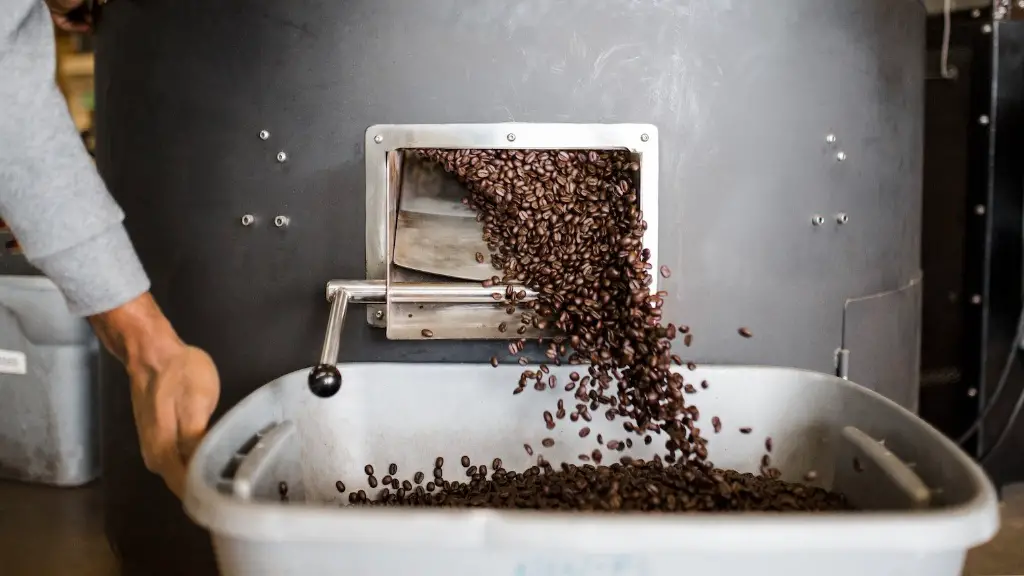The Benefits
Many people enjoy a cup of coffee after a workout, but is this a good idea? Coffee is having a resurgence in popularity among people interested in health and fitness, but is it beneficial after a workout? With its energizing effects and array of antioxidants, it’s no wonder that countless people start their day with coffee and many use it to revive after a workout.
Advocates of coffee will point out that it contains several minerals and nutrients that can be useful after a workout. It’s especially enriched with antioxidants, which helps to protect our cells against the damage inflicted by free radicals. It is also a good source of potassium and manganese, two essential minerals for muscle and nerve health.
Furthermore, coffee consumed after a workout session has been said to play an essential role in the recovery and regeneration of damaged muscles. According to some experts, caffeine from coffee can improve muscle recovery by reducing pain and inflammation, thus helping the damaged muscles to heal more quickly.
The Risks
Of course, drinking coffee after a workout involves risks and caution should be taken. Caffeine is known for its diuretic properties, which along with dehydration caused by sweating can lead to a significant loss of fluids, leading to various health-related issues. In addition, people with a sensitive stomach may find that coffee irritates their stomach muscles, causing additional discomfort.
It’s also important to bear in mind that coffee is a stimulant and as such it can cause unwanted side effects such as insomnia, agitation, rapid heart rate, headaches, anxiety and digestive problems. That is why it’s important to moderate intake and take into account the body’s individual reaction to any changes in one’s diet.
What Experts Have to Say
Most experts agree that drinking coffee after a workout is okay in moderation, provided that the individual is healthy. It’s still important to keep in mind that everyone reacts differently to different substances, and even a small amount of coffee for some may lead to an upset stomach. Additionally, one should make sure to stay hydrated, as if one doesn’t drink enough water, the diuretic effects of caffeine will only further contribute to dehydration.
According to Dawn Jackson Blatner, RDN, co-author of “The Superfood Swap” and head nutritionist at Vitality Chicago, “It can help energize recovery, particularly if you favour a darker-roast coffee and pair it with a source of protein post-workout.” Blatner recommends two shots (about two ounces) of a quality dark-roast coffee, coupled with a protein-rich snack to maximize its energizing effects.
Other Alternatives
Drinking coffee is not the only way to gain the benefits of caffeine after a workout. Caffeine tablets, as well as energy drinks and other beverages, are available and offer similar effects as coffee. It’s important to look out for the sugar content in energy drinks, however, as the added sugar can counteract the positive effects of caffeine.
There are also plenty of healthy alternatives that can help to improve performance and aid recovery, including protein shakes and dietary supplements. Natural food sources such as nuts and seeds are also a great choice, as they are rich in important nutrients like protein, vitamins, and minerals. Additionally, studies have shown that consuming certain Mediterranean foods after a workout, such as yogurt and fruits, can lead to an increase in muscle mass and a faster recovery.
Caffeine Amount
The amount of caffeine consumed post-workout should also be taken into account. It’s important to remember that too much caffeine will lead to the same side effects as too little, and can cause problems such as poor digestion and dehydration. Excess caffeine can also interfere with the body’s ability to absorb and use essential nutrients.
Most experts recommend drinking no more than two 8-ounce cups of coffee for a moderate dose of caffeine post-workout. Some may opt for an energy drink with a lower caffeine content, while others will choose to get the same amount of caffeine from a cup of regular coffee. It’s important to be aware of the caffeine-related risks and adjust the intake accordingly.
Proper Timing
Timing also plays a key role in the effectiveness of coffee after a workout. Studies have shown that caffeine works best when consumed 30 minutes to an hour before a workout. This is because it takes some time for the body to absorb caffeine, so drinking coffee too close to a workout will reduce the caffeine’s effect.
Consuming coffee within 2 to 3 hours after a workout has been shown to be beneficial for muscle recovery and can help reduce fatigue and soreness. It’s also important to bear in mind that coffee can interfere with the body’s ability to absorb essential nutrients and minerals, so it’s best to opt for an alternative if one is planning to eat a meal after the workout.
Moderation
Overall, drinking coffee after a workout is a personal choice and there isn’t one definitive answer to the question of whether it’s beneficial or not. It can be a great way to give one the extra boost they need to recover, but it’s important to be aware of the risks and to drink in moderation. Coffee can be a great way to refuel after a workout, but it should be paired with plenty of fluids and a healthy snack in order to maximise its effects.



